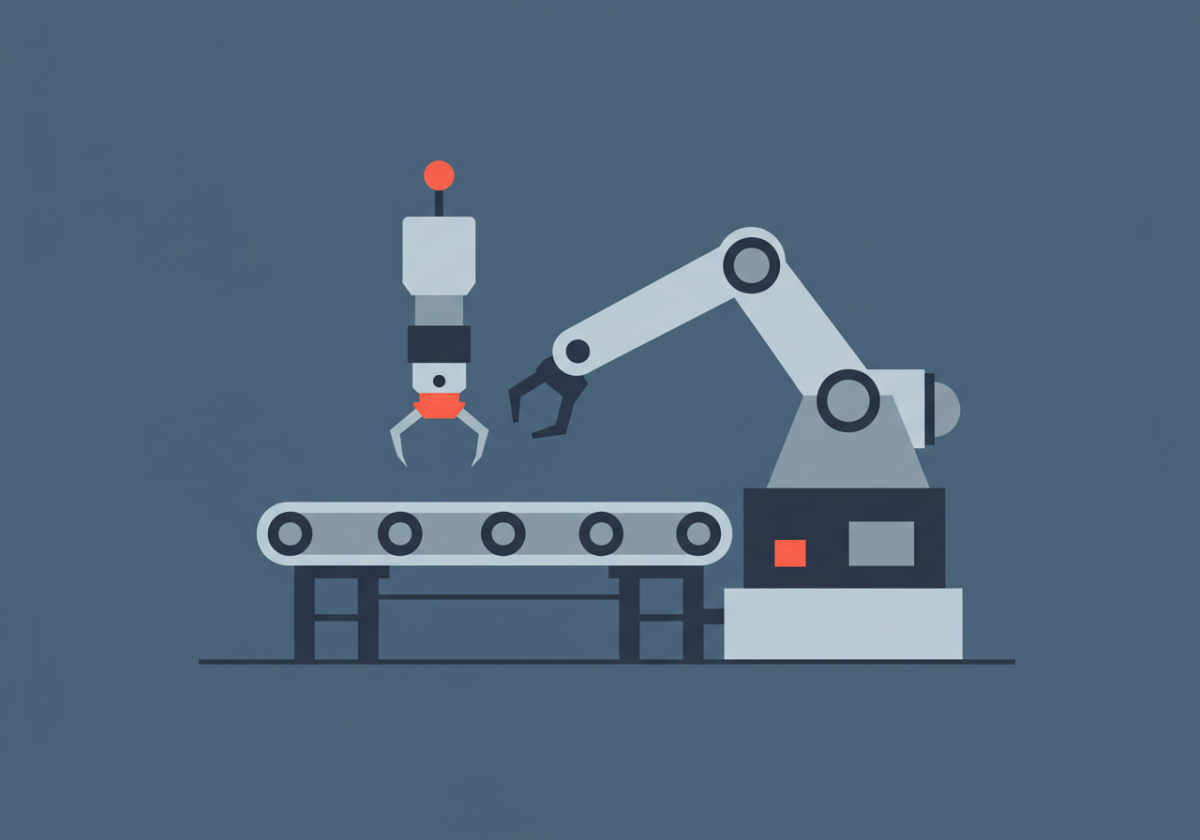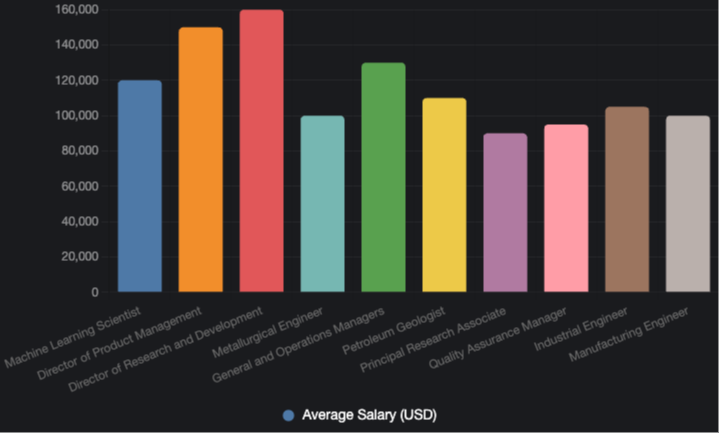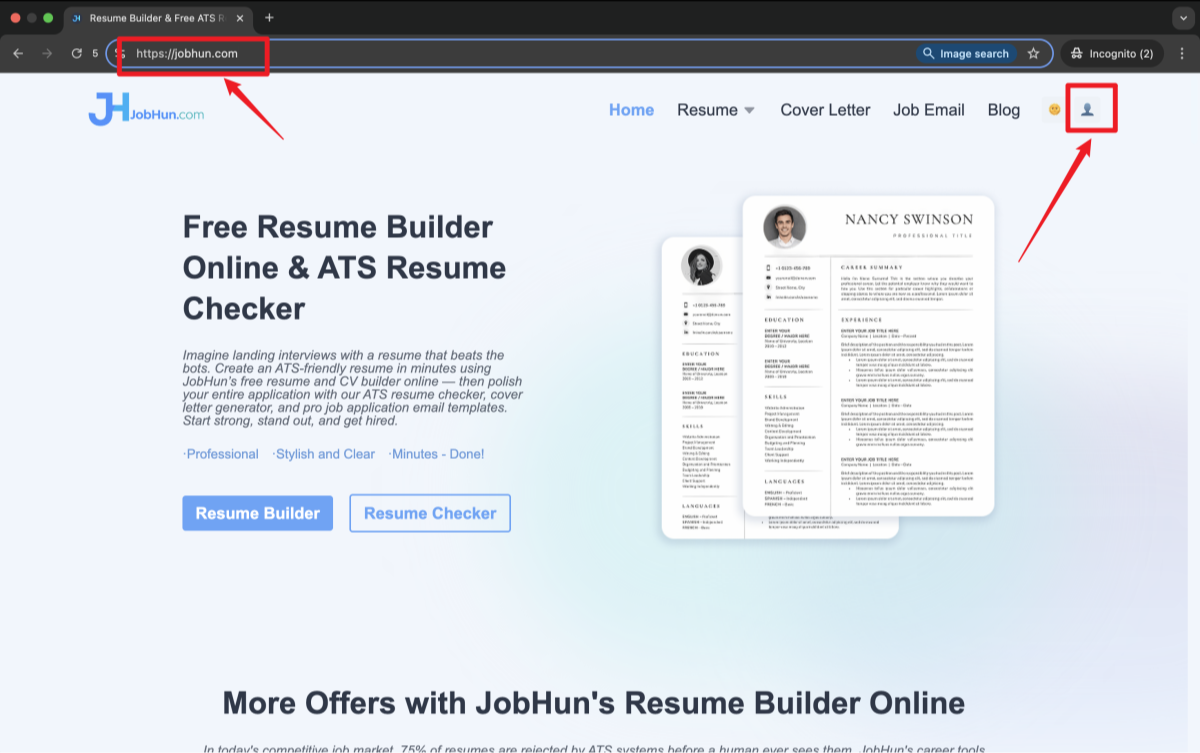
Highest paying jobs in capital equipment? I really enjoy working in this field but I'd like to earn more. My ideal role would be developing and deploying large machines. I'm fine with becoming less hands on and moving into a management role but I'd still like to be involved technically. What are the highest paying jobs you've heard of at your companies? -- from Reddit
The capital goods sector is the powerhouse behind the global economy, creating the essential tools and machinery that drive production across nearly every other industry. If you're looking for a clear capital goods definition, think of them as the "producers' goods." They are the items of physical capital—like industrial machinery, manufacturing robots, construction vehicles, and even enterprise computer systems—used to create other products.
This core function sets them apart from the items we buy every day. Understanding the difference between consumer goods and capital goods is key to seeing why careers in this field are so critical and often, highly compensated. Because this industry is foundational, companies are willing to pay top dollar for skilled professionals. Capital associated industries jobs can range from hands-on production and engineering roles to high-level strategic management.
So, what do capital goods jobs pay? We’ve analyzed the market to bring you a definitive list of the most lucrative opportunities. This guide highlights the top 10 best paying jobs in capital goods, covering in-demand positions like:
- Machine Learning Scientist - Crafts smart algorithms to streamline capital goods production.
- Director of Product Management - Guides new capital goods products from concept to market.
- Director of Research and Development - Drives innovation for next-level capital goods solutions.
- Metallurgical Engineer - Shapes the materials that make capital goods tough and reliable.
- General and Operations Managers - Keeps manufacturing plants running like clockwork.
- Petroleum Geologist - Supports energy or material sourcing for production processes.
- Principal Research Associate - Researches ways to improve capital goods tech.
- Quality Assurance Manager - Ensures every capital good meets top standards.
- Industrial Engineer - Boosts efficiency in capital goods production systems.
- Manufacturing Engineer - Perfects the methods behind making capital goods.
Stick around as we dig into each of these roles, covering what they do, what you need to get started, and how much you could earn. Whether you’re scoping out the best paying jobs in capital goods or just want to know more about this dynamic industry, JobHun’s got you covered.

Examples of Capital Goods
Capital goods are essential assets used by businesses to produce other products. Examples include factory buildings, machinery like 3D printers, and vehicles such as delivery trucks. Interestingly, the same item can be a capital good or a consumer good depending on its use. For instance, an oven in your home is a consumer good, but in a pizza shop, it’s a capital good because it’s used to generate income.
It’s essential to understand that whether an item is a capital good or a consumer good depends on its purpose. For instance, an oven in a home is classified as a consumer good, as it’s for personal use. However, the same oven used in a pizza restaurant is a capital good because it contributes directly to producing goods for sale.
Should I work in the capital goods industry
If you’re considering a career in the capital goods industry, you might be wondering whether it’s a good fit and what the pay looks like. The industry is growing, which means the job outlook is promising, especially if your skills and interests align with roles in manufacturing, engineering, or management. Whether it’s right for you depends on your expertise—technical positions often require specialized knowledge, while leadership roles demand experience and strategic thinking.
Capital Goods Jobs Salary
As for salaries, the capital goods sector offers a wide range depending on the role, experience, and location. To give you a better idea, here’s a chart showcasing the average salaries for some of the top-paying jobs in the industry:
As you can see, leadership roles like Director of Research and Development and Director of Product Management tend to command the highest salaries, often exceeding $150,000 annually. Technical positions such as Machine Learning Scientist and Petroleum Geologist also offer competitive pay, reflecting the specialized skills required. Meanwhile, engineering roles like Metallurgical Engineer and Industrial Engineer provide solid earning potential, typically in the $100,000 to $110,000 range. Keep in mind these are rough estimates—actual salaries can vary based on seniority, expertise, and the cost of living in your area. If you’re looking to pivot or advance in this field, there are plenty of lucrative opportunities to consider!

Why JobHun for Resume Building
Job searching is tough—but it doesn’t have to be overwhelming. At JobHun, we build tools that simplify every step of your job hunt. Whether you're writing your resume, crafting a tailored cover letter, or figuring out how to respond to interview emails, we’re here to help you do it smarter and faster.
Go to the JobHun Website
Start by visiting JobHun.com.
Once you're on the homepage, click the 👤 profile icon in the upper-right corner. This will take you to JobHun’s resume builder web app.

Access the Resume Dashboard
You’ll land on webapp.jobhun.com/mine.
If you’re not logged in yet, the site will prompt you to sign up or log in.
- Click the “New Resume” button, or
- Click “Go to Login” in the upper-right corner.
Either option will take you to the sign-in page.

Sign Up or Log In to Your Account
You have two login options:
- Use your Google account for quick access
- Or manually enter your email, password, and name, then click “Go”
Once you're signed in, your personal dashboard will appear.

Click “New Resume” to Get Started
Now that you’re logged in, your profile details (name, email, join date) will show in the top-right corner.
Click the “New Resume” button again to open the AI resume builder.

Build and Customize Your Resume
The resume builder layout is split into two main parts:
- Left panel: Your control dashboard, where you can add, edit, or organize resume sections (summary, experience, skills, etc.)
- Right panel: A live preview of your resume that updates as you make changes
You can now:
- Use AI to auto-generate resume content
- Manually edit each section
- Format, reorder, and polish until you're happy with the result

Our platform is designed for real job seekers—whether you’re switching careers, just starting out, or aiming for your next big role. From our online free AI Resume Builder to our ATS-friendly Resume Checker and job application writing tools, everything at JobHun is built to get you hired—without the stress.
10 Best Paying Jobs in Capital Goods
The capital goods industry powers the world’s production with machinery, tools, and equipment, making it a goldmine for lucrative careers. If you’re searching for the best paying jobs in capital goods, you’re in the right place. This guide reveals the top 10 roles, with salaries reaching up to $161,000, perfect for job seekers or professionals eyeing a career shift. From innovative tech roles to strategic leadership positions, these high-paying jobs in manufacturing offer both financial rewards and a chance to shape the future.
Let’s dive into the countdown, starting with the highest earner.
Machine Learning Scientist
Average Salary: $161,000
Source: Prospects.ac.uk
Machine Learning Scientists are revolutionizing the capital goods sector with AI-driven solutions. Earning a hefty $161,000 on average, they design smart systems that predict trends, optimize workflows, and enhance product development. Imagine crafting algorithms that anticipate market demands—pretty cool, right?
You’ll need expertise in artificial intelligence, statistics, and mathematical modeling, plus top-notch communication skills to team up with marketing, operations, and execs. With AI booming in manufacturing, this role’s demand is skyrocketing, making it a prime pick for tech-savvy career climbers.
Director of Product Management
Average Salary: $157,000
Source: Indeed.com
Step into the driver’s seat as a Director of Product Management, where you’ll lead teams to bring capital goods from vision to reality. With an average salary of $157,000, you’ll oversee the product lifecycle, ensuring every cog in the machine—from manufacturing to sales—turns smoothly.
A bachelor’s degree is a must, and a master’s can give you an edge. Skills in data analysis, business development, and supply chain logistics are your toolkit. Bonus? This gig often paves the way to C-suite roles like Chief Product Officer.
Director of Research and Development
Average Salary: $135,000
Source: Payscale.com
The Director of Research and Development (R&D) is the innovation engine of capital goods. At $135,000 annually, you’ll pioneer new products or refine existing ones, like slashing production’s carbon footprint with clean energy tech.
Expect to bring 10 years of experience, an advanced degree, and people skills to the table. You’ll collaborate with engineers and marketers to turn ideas into profit. It’s a role where your creativity can redefine industry standards.
Metallurgical Engineer
Average Salary: $125,000
Source: Salary.com
Metallurgical Engineers are the metal maestros behind durable capital goods. Earning $125,000, they tweak alloys for everything from skyscraper beams to car parts, ensuring top performance in production equipment.
An advanced degree in metallurgy or chemical engineering and a decade of experience are your entry tickets. Specialize in titanium or stainless steel, and you’ll shine brighter. With sustainability trending, eco-friendly metal innovations could make you a hot commodity.
General and Operations Managers
Average Salary: $120,000
Source: Glassdoor
General and Operations Managers keep the capital goods engine humming. At $120,000 a year, they plan and execute operations, juggling daily tasks or steering the whole company ship—sometimes both!
A bachelor’s degree and solid experience are key, along with quick thinking and leadership chops. This role’s versatility makes it a stable, high-impact choice in the capital goods careers landscape.
Petroleum Geologist
Average Salary: $109,000
Source: Payscale.com
Petroleum Geologists fuel the capital goods industry by pinpointing oil reserves. With a $109,000 salary, they analyze geological data to keep production flowing—literally.
You’ll need a bachelor’s in geology or a related field (a master’s helps), plus sharp analytical skills. It’s a niche role with big rewards, especially as energy demands evolve.
Principal Research Associate
Average Salary: $104,000
Source: Salary.com
Principal Research Associates are the brains behind market strategies in capital goods. Earning $104,000, they dig into data to shape business plans, specializing in areas like energy or chemical manufacturing.
A bachelor’s is the baseline, but a master’s ups your game. Mastery of research methods and tools like Excel or MS Project is a must. It’s a stepping stone to leadership for data lovers.
Quality Assurance Manager
Average Salary: $100,000
Source: Comparably.com
Quality Assurance Managers ensure capital goods meet sky-high standards. At $100,000, they spot issues before they arise, keeping product quality rock-solid throughout the lifecycle.
A bachelor’s and 3-5 years of experience get you in, with problem-solving and detail orientation as your superpowers. Certifications like Six Sigma can turbocharge your resume.
Industrial Engineer
Average Salary: $99,000
Source: Glassdoor
Industrial Engineers are efficiency wizards, streamlining manufacturing and logistics in capital goods. With a $99,000 salary, they design systems to cut costs and boost output, dabbling in robotics or automation if they choose.
A four-year engineering degree is essential, and a master’s or PE certification opens management doors. It’s a dynamic role for process perfectionists.
Manufacturing Engineer
Average Salary: $77,000
Source: Michigan Tech
Manufacturing Engineers craft the goods we rely on, earning $77,000 while designing and testing production processes. They’re all about efficiency, quality, and teamwork with scientists and marketers.
A bachelor’s in engineering and some hands-on experience are your foundation. It’s an accessible entry into high-paying jobs in manufacturing with room to grow.
Why Choose a Career in Capital Goods?
These capital goods careers blend big paychecks with real-world impact. Whether you’re drawn to tech, leadership, or hands-on engineering, there’s a role here for you. As industries prioritize automation and sustainability, these jobs are set to stay in demand. Ready to jump in? Your next high-paying gig awaits!
Final Thoughts
The capital goods industry is on fire, with the Bureau of Labor Statistics clocking nearly 13 million manufacturing jobs in July 2022. But hold up—there’s so much more to this field than just the factory floor. Think engineering, project management, or even leadership gigs. These aren’t just jobs; they’re high-paying, game-changing career paths waiting for you to jump in and make your mark.
So, how do you get started? First, take a good look at yourself—what skills and passions do you bring to the table? Pinpoint the capital goods role that lights you up. Step two: map out your attack plan. Do you need to hit the books for a degree, snag a certification, or rack up some hands-on experience? Whatever it is, own it. Finally, round up your crew—mentors, networks, and killer tools like Teal’s Job Tracker to keep your job hunt on point. Three steps, that’s it, and you’re charging toward a career that’s not just a paycheck but a dream come true. Ready to make it happen?
Frequently Asked Questions
What qualifications are typically required for the highest paying jobs in the capital goods sector?
To land the highest paying jobs in the capital goods sector, you’ll need a solid mix of education and real-world experience. Roles like Engineering Managers, Directors of Product Management, or Machine Learning Scientists—think salaries topping $150,000—typically demand at least a bachelor’s degree in fields like engineering, computer science, or business. For example, a Metallurgical Engineer might need a degree in metallurgy or chemical engineering, while a Director of Research and Development often brings an advanced degree, like a master’s or even a PhD, to the table.
But it’s not just about the diploma. These top-tier positions usually require several years of industry experience—often 5 to 10 years—honed in areas like manufacturing, product development, or operations. Specialized certifications can also set you apart; think Six Sigma for Quality Assurance Managers or a Professional Engineer (PE) license for Industrial Engineers. The key? Pair that academic foundation with hands-on skills in leadership, data analysis, or cutting-edge tech like AI to unlock these lucrative gigs.
Are there opportunities for career advancement within the capital goods industry?
Absolutely, the capital goods industry is a ladder worth climbing! Whether you’re starting on the factory floor or in an entry-level engineering role, there’s plenty of room to grow into high-paying manufacturing jobs. The path is clear: stack up experience, pursue further education, and lean into professional development. Many companies offer structured career tracks, guiding you from technical roles—like a Manufacturing Engineer earning $77,000—up to management or even executive positions, such as a General and Operations Manager pulling in $120,000 or more.
The industry values internal talent, often promoting from within and investing in leadership training. For instance, a Principal Research Associate could level up to a Director of R&D with the right moves. With the sector’s focus on innovation—think robotics or sustainable production—staying sharp with new skills can fast-track you to the top. It’s a field where ambition pays off.
How does the demand for capital goods jobs affect salaries in the industry?
Demand is a game-changer for salaries in the capital goods industry. When skilled pros—like Industrial Engineers or Petroleum Geologists—are in short supply, companies crank up the pay to snag and keep the best. Take specialized roles in robotics, automation, or industrial design: as these areas heat up, employers shell out competitive wages—sometimes pushing salaries past $100,000—to stay ahead. The Bureau of Labor Statistics noted nearly 13 million manufacturing jobs in 2022, signaling a robust market where talent is king.
As the industry evolves with tech breakthroughs—like AI or clean energy—demand for workers with cutting-edge skills spikes, driving up pay for critical roles. A Machine Learning Scientist, for instance, can command $161,000 because their expertise fuels innovation. High demand plus high value equals a paycheck that reflects your worth. It’s simple supply and demand, with a capital goods twist.




![80+ Resume Summary Examples for 2025 [+How-to Guide] | JobHun](https://static.jobhun.com/jobhun/cms/prod/f_1750407838_1364.png?x-oss-process=image/resize,w_800/format,jpg/quality,q_75/auto-orient,1)

